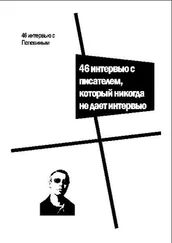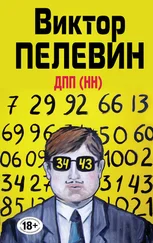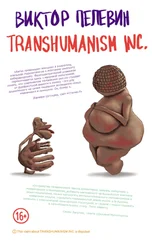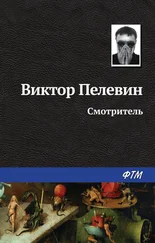Виктор Пелевин - Babylon
Здесь есть возможность читать онлайн «Виктор Пелевин - Babylon» весь текст электронной книги совершенно бесплатно (целиком полную версию без сокращений). В некоторых случаях можно слушать аудио, скачать через торрент в формате fb2 и присутствует краткое содержание. Жанр: Современная проза, на английском языке. Описание произведения, (предисловие) а так же отзывы посетителей доступны на портале библиотеки ЛибКат.
- Название:Babylon
- Автор:
- Жанр:
- Год:неизвестен
- ISBN:нет данных
- Рейтинг книги:5 / 5. Голосов: 1
-
Избранное:Добавить в избранное
- Отзывы:
-
Ваша оценка:
- 100
- 1
- 2
- 3
- 4
- 5
Babylon: краткое содержание, описание и аннотация
Предлагаем к чтению аннотацию, описание, краткое содержание или предисловие (зависит от того, что написал сам автор книги «Babylon»). Если вы не нашли необходимую информацию о книге — напишите в комментариях, мы постараемся отыскать её.
Babylon — читать онлайн бесплатно полную книгу (весь текст) целиком
Ниже представлен текст книги, разбитый по страницам. Система сохранения места последней прочитанной страницы, позволяет с удобством читать онлайн бесплатно книгу «Babylon», без необходимости каждый раз заново искать на чём Вы остановились. Поставьте закладку, и сможете в любой момент перейти на страницу, на которой закончили чтение.
Интервал:
Закладка:
‘I summon the spirit of Che Guevara. I summon the spirit of Che Guevara,’ he said, and immediately thought that he ought not just to summon the spirit; he ought to ask it a question. ‘I’d like to know… mmm, let’s say, something new about advertising, something that wasn’t in Al Rice or comrade Ogiivy,’ he said. ‘I want to understand more than anybody else.’
At that very instant the ouija board began jerking epileptically beneath his spread palms and the pen set in the slot traced out a string of large capital letters at the top of the sheet of paper:
IDENTIALISM AS THE HIGHEST STAGE OF DUALISM
Tatarsky jerked his hands away and stared in fright at the words for several seconds. Then he put his hands back and the ouija board began moving again, but this time the letters produced by the pen were small and neat:
These thoughts were originally intended for the journal of the Cuban armed forces, Oliva Verde. But it would be foolish to insist on matters of such petty detail now that we know for certain that the entire plan of existence, in which journals are published and armed forces engage in action, is simply a sequence of moments of awareness, united solely by the fact that in each new moment the concept of the preceding moments is present. Although from time without beginning this sequence remains unbroken, awareness is never actually aware of itself. Therefore the condition of man in this life is lamentable.
That great champion of the liberation of humanity, Siddhartha Gautama, has indicated in many of his works that the principle reason for the lamentable condition of man in this life is first and foremost the very conception of man’s existence, life and lamentable condition - that is to say, the dualism that imposes the division into subject and object of something that in actual fact has never existed and never will.
Tatarsky pulled out the sheet of paper covered in writing, set his hands on the ouija board and it trembled into motion again:
Siddhartha Gautama was able to convey this simple truth to many people because in his time their feelings were simple and strong, and their internal world was clear and unclouded. Hearing a single word could completely change a man’s entire life and transport him instantly to the other shore, to a freedom unconstrained in any way. But since that time many centuries have passed. The words of the Buddha are now accessible to all, yet salvation comes to but few. There can be no doubt that this is the result of the cultural situation that the ancient texts of all religions called the ‘dark age’ to come.
Comrades in the struggle! This dark age has already begun. And its onset has been brought about primarily by the role that the so-called visual-psychic generators or type-two objects have come to play in the life of man.
In speaking of the fact that dualism lisas engendered by the arbitrary division of the world into subject and object, the Buddha was concerned with subject-object division of the first type. The major distinguishing feature of the dark age lies in the decisive influence exerted on the life of man by subject-object division of the second type, which in the time of the Buddha simply did not exist.
In order to explain what is meant by objects of the first and second types, let us take a simple example, a television set. This is simply a box with a glass wall, which we are free to watch or not watch. When an individual’s gaze falls upon a dark screen, the movement of his or her eyes is controlled exclusively by internal nerve impulses or the psychological process taking place in his or her consciousness. For instance, an individual might notice that the screen is fly-spotted. Or he or she might decide that it would be a good idea to buy a television twice as big. Or think that it would be a good idea to stand it in a different corner. Until a television is switched on it is in no way different from the objects with which people had to deal in the Buddha’s time, be it a stone, the dew on a blade of grass or an arrow with a divided head - in short, everything that the Buddha used to illustrate his talks.
But when a television is turned on, it is transformed from an object of the first type into an object of the second type. It becomes a phenomenon of an entirely different order. And although the person looking at the screen does not notice this customary transformation, it is truly immense. For the viewer the television disappears as a material object that possesses weight, size and other physical properties. Instead of this the viewer has the sensation of being present in a different space, a sensation familiar to all who are assembled there.
Tatarsky glanced around, as though expecting to find himself surrounded by this assembled company, but of course there was nothing to be seen. As he removed another sheet of paper covered in writing from under the board, he figured out roughly how long the paper would last, then set his palms back against the wooden surface.
Comrades in the struggle! The question is - who is actually present? Can we say that it is the viewer himself?
Let us repeat the question, since it is extremely important: is it possible to say that the television is being watched by the individual who is watching it?
We assert that it is not, for the following reason. When the individual viewed the television while it was switched off, the movement of his or her eyes and the flow of his or her attention were controlled by his own voluntary impulses, chaotic though they may have been. The dark screen with no image of any kind did not exert any influence over them, or if it did, it was only as a background.
When it is switched on, a television almost never transmits a static view from a single motionless camera, and therefore the image on it is not a background. Quite the contrary, this image changes at an extremely rapid rate. Every few seconds there is either a change of camera angle or a fade into close-up on some object, or a switch to a different camera - the image is constantly being modified by the cameraman and the producer who stands behind him. This changing of the image is known as technomodification.
We ask you to pay particularly close attention at this point, since our next thesis is rather difficult to grasp, although in essence it is extremely simple. In addition, the feeling might arise that we are dealing with something that is insignificant. But we make bold to assert that we are in fact dealing with the most real psychological phenomenon of the end of the second millennium.
The changes in the image produced by various technomodifications can be correlated with a virtual psychological process in which the observer is forced to switch his attention from one event to another and select the most interesting content from what is taking place - that is, to manage his own attention as the makers of the programme manage it. This psychological process creates its own virtual subject, which for the duration of the television programme exists in place of the individual, fitting into his or her consciousness like a hand into a rubber glove.
This is similar to the condition of possession by a spirit. The difference lies in the fact that in this case the spirit does not exist; all that does exist are the symptoms of possession. This is a virtual spirit, but from the moment the viewer entrusts the programme-makers with redirecting his or her attention at will from object to object, he or she effectively becomes this spirit, and the spirit, which does not actually exist, possesses this viewer and millions of others.
What is taking place could appropriately be called the experience of collective non-existence, since the virtual subject that replaces the viewer’s actual consciousness is absolutely non-existent - it is merely an effect created by the collective efforts of editors, cameramen and producers. However, for the individual watching the television there is nothing more real than this virtual subject.
Читать дальшеИнтервал:
Закладка:
Похожие книги на «Babylon»
Представляем Вашему вниманию похожие книги на «Babylon» списком для выбора. Мы отобрали схожую по названию и смыслу литературу в надежде предоставить читателям больше вариантов отыскать новые, интересные, ещё непрочитанные произведения.
Обсуждение, отзывы о книге «Babylon» и просто собственные мнения читателей. Оставьте ваши комментарии, напишите, что Вы думаете о произведении, его смысле или главных героях. Укажите что конкретно понравилось, а что нет, и почему Вы так считаете.






